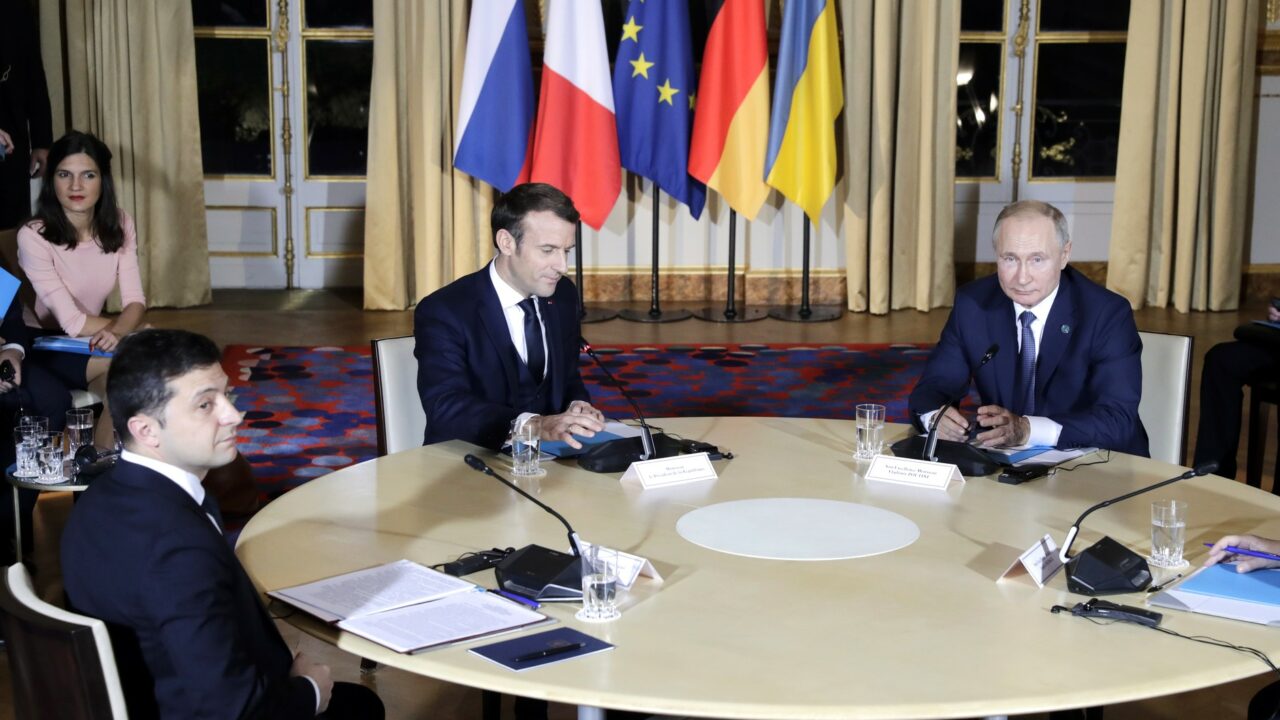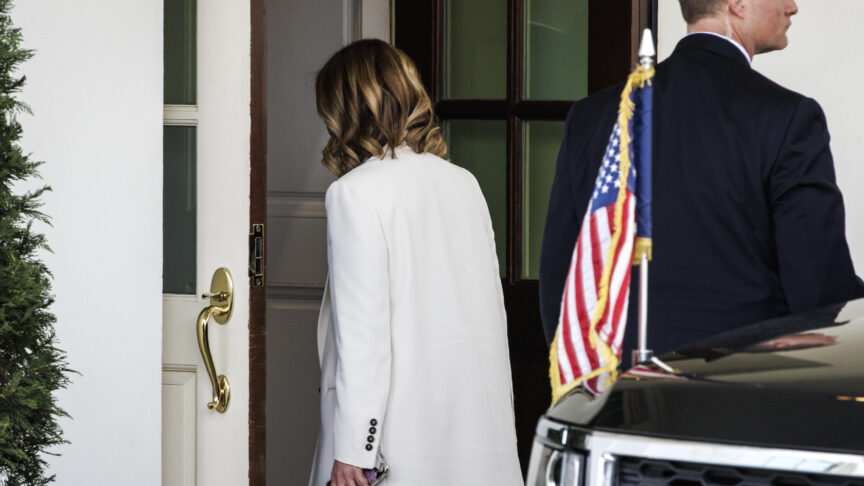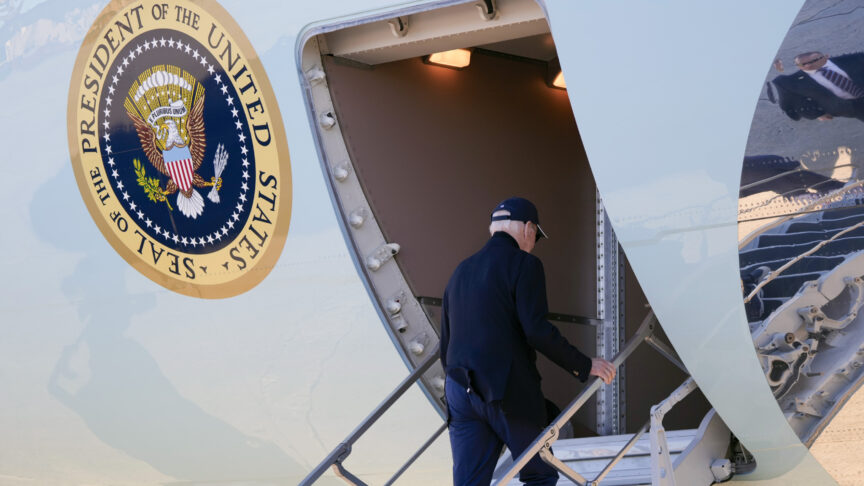Diplomacy for a sovereign Europe: France’s approach to the war in Ukraine
For France, European sovereignty was at the heart of the recent talks at the meeting of EU foreign ministers in Brest. Paris aims to reinforce Europeans’ position of strength, while doing its utmost to avoid war
Decisions on European security are being made without its main stakeholders. Statements such as this have made headlines across Europe. Paris laments the widespread popular perception that Europeans are uninvolved in diplomatic talks over escalating tensions on the eastern flank of Europe. In reality, they are present in all the relevant forums: the Geneva discussions (through consultations with the United States), the NATO-Russia Council, and the Organization for Security and Co-operation in Europe (OSCE).
Paris, like Berlin, is committed to its role as a mediator in the Normandy negotiations with Kyiv and Moscow – which should resume after a two-year hiatus. Emmanuel Bonne and Jens Plötner, diplomatic advisers to French President Emmanuel Macron and German Chancellor Olaf Scholz respectively, have visited Kyiv and Moscow in recent days to ensure that these talks restart at the ministerial level before long. Despite coming in for heavy criticism, the Normandy format is now widely acknowledged as the main framework through which to resolve the conflict in Ukraine’s east.
Despite diverging analyses of whether an attack is imminent, Paris is aligned with its European partners in preparing to respond to all scenarios of military escalation near the Russian-Ukrainian border – where Russia has massed almost 100,000 troops in recent months. Europeans were concerned about the cyber-attacks Ukraine suffered on 14 January, prompting NATO to announce that it had signed an agreement that reinforces its cooperation with the country in countering such attacks.
Meanwhile, Russian officials have pointed to Europeans’ absence from the negotiating table – even if they appear to have missed the irony in this, given that Moscow tried to go over Europeans’ heads by ‘bilateralising’ its discussions with Washington. But – following the diplomatic fallout from the announcement of the AUKUS security pact in September 2021 – Americans and Europeans have engaged in heightened consultations and cooperation. This has meant that Europeans have been present in the key discussions over the war in Ukraine all along, allowing them to directly respond to Russia’s demands for security guarantees. The idea is to maintain communications channels to Moscow without giving in to its demands on non-negotiable issues. Accordingly, the discussions between the sides are set to be on European security, not on the Russian propositions.
In a sequence of meetings last week, Americans and Europeans, as well as Europeans within the EU, made the necessary show of unity in their approach to Russia. These talks involved US Deputy Secretary of State Wendy Sherman and Russian Deputy Foreign Minister Sergei Ryabkov in Geneva, the first NATO-Russia Council meeting in three years in Brussels, and OSCE discussions in Vienna. By definition, Europe is involved whenever there are talks at the NATO level. The OSCE, the only institution where the east and west of Europe meet on a regular basis, is tasked with supervising the implementation of the Minsk protocol, which was designed to put an end to the war in Donbas. As such, it should be the standard forum for such discussions, even if it has been unsuccessful so far.
Europeans have been present in the key discussions over the war in Ukraine all along, allowing them to directly respond to Russia’s demands for security guarantees
The show of unity by Europeans is particularly remarkable in light of their initial positions on the war in Ukraine. Holding the presidency of the Council of the European Union, France knows it has a special role to play in listening to, and taking account of, its key partners’ concerns. France is also conscious that some of these partners – especially central and eastern EU member states – suspect it of complacency towards the threat from Russia. Hence, Paris is aware that it has a responsibility to ensure that the Russia issue does not divide Europeans. As such, French leaders will seek to make the most of an interesting coincidence: while Paris holds its current presidency in the Council of the EU, Berlin and Warsaw have the same roles in the G7 and the OSCE respectively. As the EU, the G7, and the OSCE will all be essential forums in the developments in European security to come, it may be time for the Weimar format to fulfil its potential.
While the pivotal negotiations over Ukraine will take place in the Normandy format, the other – less formal – talks with Russia will also be important. However, the resumption of talks will not necessarily lead to negotiations. For this to happen, the talks would require written support. So far, Moscow has only made ultimatums – such as its demand that Ukraine be permanently forbidden from joining NATO, which Sherman dismissed as a non-starter for the US and its allies.
For France, European sovereignty is at the heart of the talks at last week’s meeting of EU foreign ministers in Brest. Paris aims to reinforce Europeans’ position of strength, while doing its utmost to avoid war. The escalation of the conflict in Ukraine and a potential stalemate in talks over it could prove to be a strategic surprise that upends the French presidential campaign. Although foreign policy is not usually a hot topic in these campaigns, Russia is the one exception to this. The issue gets the candidates’ blood flowing: French politics has a pro-Russian strand that transcends traditional fault lines between the far right and the far left, with figures on both sides advocating rapprochement with Russia. Depending on how the situation in Ukraine evolves, French presidential candidates might find themselves caught up in the defence or rejection of this impulse towards rapprochement.
In all talks on European security, the EU’s overarching objective it is to remain a fully fledged actor in its own right, and to reaffirm its capacity to counter the threats it faces. The EU has announced that it is preparing to impose heavy sanctions on Russia, in hope of deterring another Russian invasion of Ukraine. Ideally, in the near future, Europeans will draw on these experiences to regain the upper hand in setting the political agenda with Russia – on issues such as arms control, for instance – when their strategic interests are at stake.
The European Council on Foreign Relations does not take collective positions. ECFR publications only represent the views of their individual authors.



